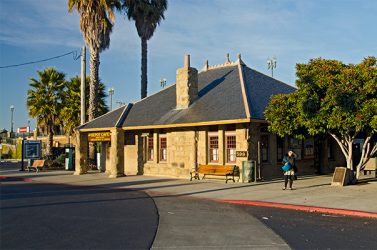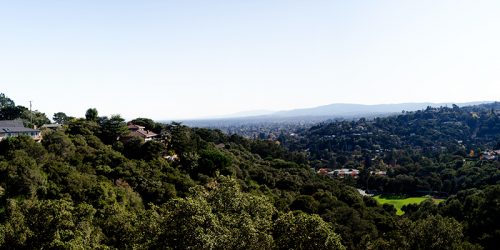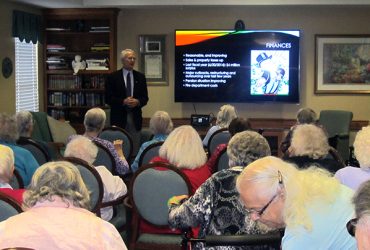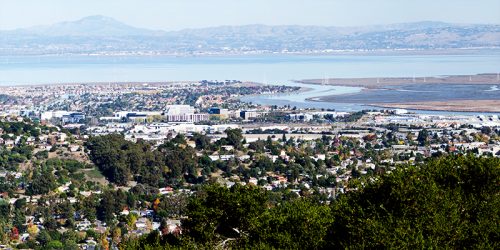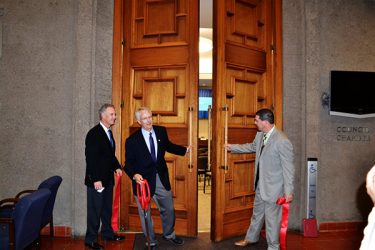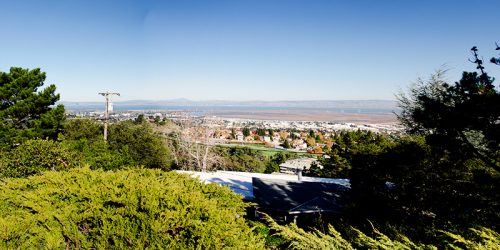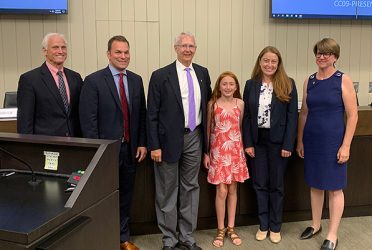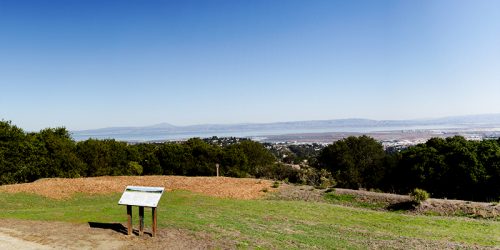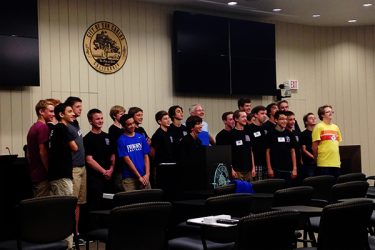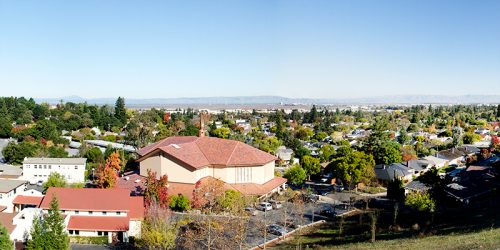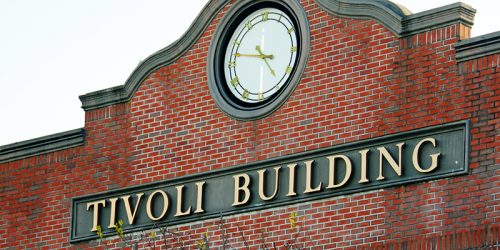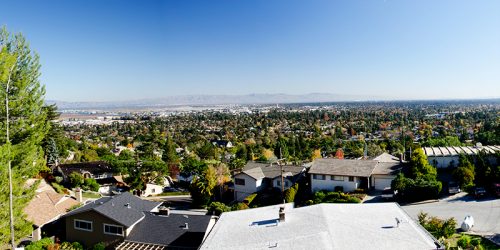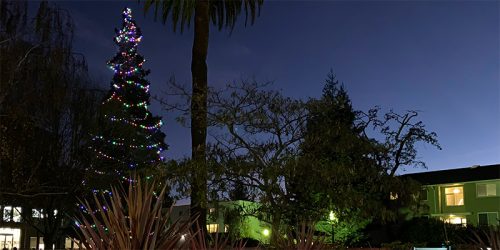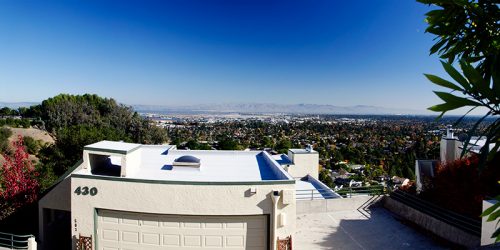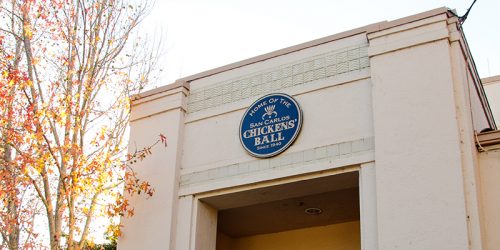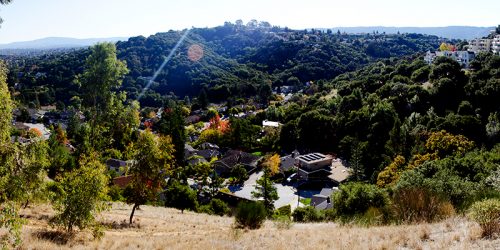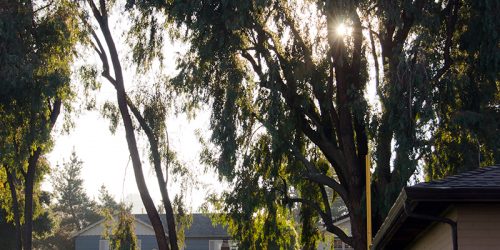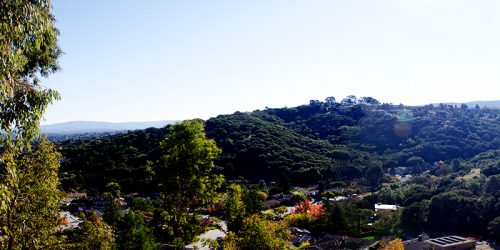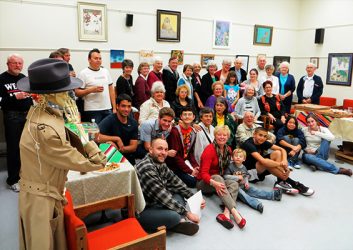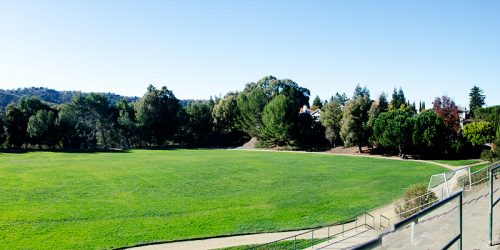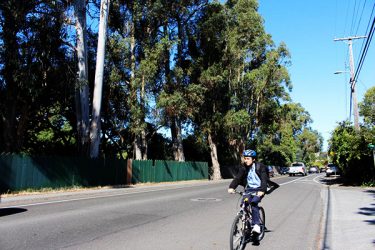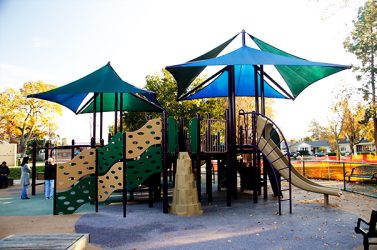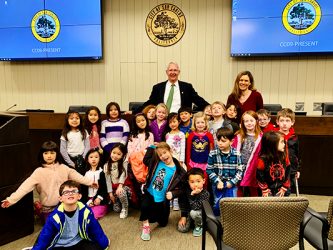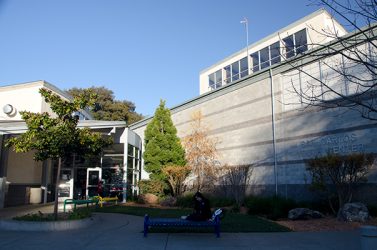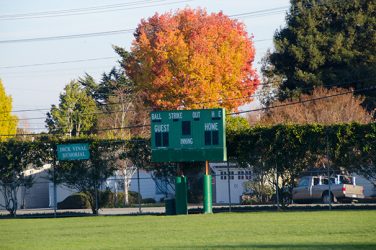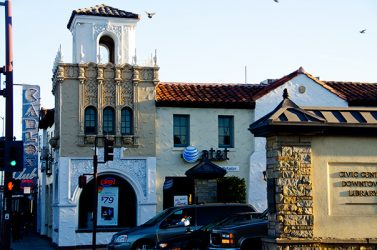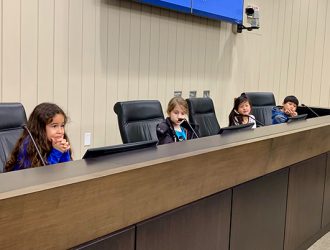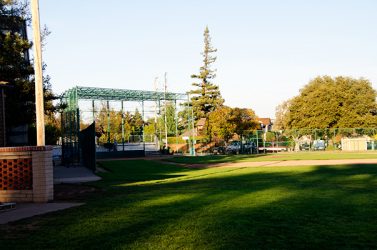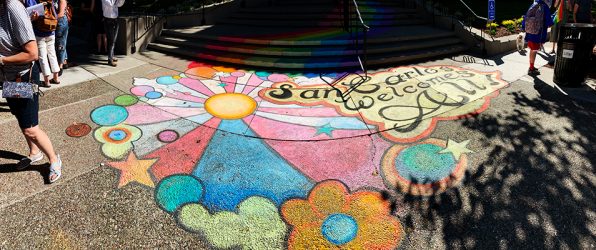I’ve seen quite a bit of discussion online about the city’s stance regarding holiday celebrations, specifically the Eucalyptus Avenue ones that traditionally occur on Halloween and for Christmas. I thought it would be helpful to share what I know about what the city has done recently.
Let’s start with the basics. There aren’t any rules specifically governing how individuals or neighborhoods choose to celebrate any holiday (or any day at all for that matter). Everyone is free to celebrate however they want.
But there are general rules which apply to all activities undertaken on private property. These are intended to avoid unreasonable interference with other people and households. Some examples:
- Keeping noise levels below certain levels past certain times.
- Limits on creating attractive nuisances. An example of such an attractive nuisance might be a party that was so big and attracted so many people that it unreasonably interfered with neighbors being able to get in and out of their own property.
- Maintaining private property in a reasonably clean and orderly condition. In the case of celebrations this typically involves cleaning up trash and litter created by the celebration.
As you can see these kinds of general rules don’t specifically reference neighborhood celebrations. But they do need to be followed. There is no “free pass” for rule violations caused by an informal neighborhood celebration.
Long-standing community rules have specifically allowed neighborhoods to apply for a permit to host “formal” events where blocks could be closed off. Such formal events are treated a bit differently because they are subject to permits where the neighborhood agrees to abide by rules governing the celebrations. To encourage these community-building events, several years ago the Council waived the permit fees and provided free insurance coverage for them.
Getting such a permit does require the support of two-thirds of the households in the area that would be closed off. That super-majority threshold was set because an event opposed or undesired by almost a majority (i.e., supported by just over a simple majority) would probably do more to divide a neighborhood than unite it.
But there was an unwritten exception to all these rules: they were not generally enforced when it came to celebrations on Eucalyptus Avenue.
That worked okay for many years. But with the growth of Eucalyptus Avenue events and the increasingly large crowds they drew the negative impacts — which any celebration has — became too much for some of the neighborhood residents. After many discussions with residents the city decided the community’s long-standing rules governing how neighbors can impact each other needed to be enforced on Eucalyptus, too.
That, in fact, is the main (and maybe only) change the city signaled in the letter it sent to Eucalyptus residents recently. No rules were added or changed. But the existing rules will be followed going forward.
What does this mean for the Eucalyptus neighborhood? From one perspective, not much. No one is being stopped from celebrating a holiday, any holiday (or even any non-holiday) however they wish. They just need to comply with the rules which seek to limit negative impacts on neighbors (or band together and go the permitted block party route).
And why wouldn’t everyone want to do that? I don’t know of anyone in San Carlos who cares so little for his or her neighbors that they want to cause them trouble. That doesn’t mean trouble doesn’t happen but it’s almost always inadvertent. Like having a party that gets too loud too late in the evening.
Nor does resolving those kinds of negative impacts necessarily involve the city. In many cases, probably most, neighbors work them out privately. Which is as it should be. The city gets involved when someone is so negatively impacted by an activity that they feel compelled to call the authorities.
That, too, is as it should be. Being part of a community not only means following community rules but also having the right to report possible violations of those rules, and, if the violations are valid, have them addressed. Whether those problems involve excessive noise, trash that ended up on your lawn, an inability to get in and out of your home, etc.
The city’s goal in opting not to exempt the Eucalyptus neighborhood is simple: make sure that everyone who lives there gets to enjoy life, each in their own way, to the extent reasonably possible. That’s one of the primary goals of reasonable government.
It’s also a big part of what it means to be a City of Good Living. Which is something we all support.
